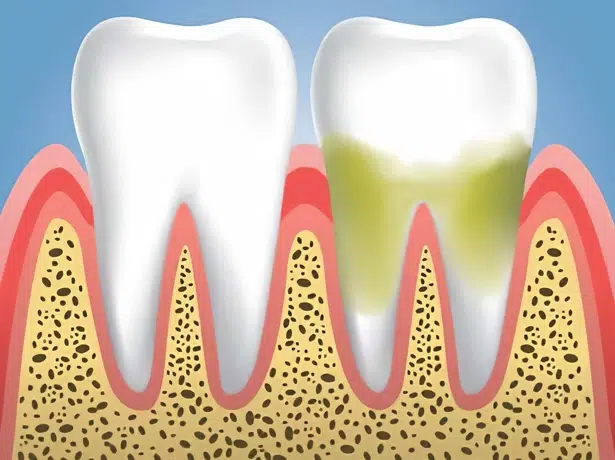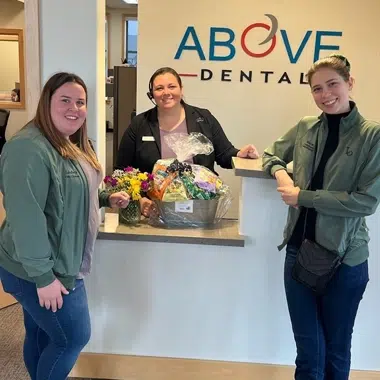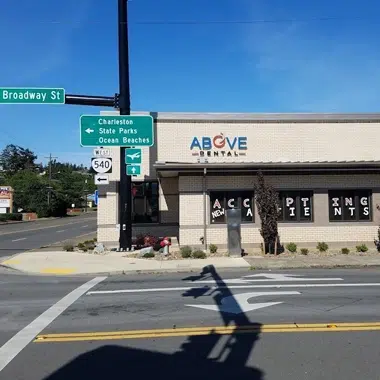
Periodontal Disease at a Glance
Here’s what you need to know about periodontal disease and how Above Dental can help you.Many people think about their teeth and how to protect against cavities. But did you know that periodontal (gum) disease is a bigger problem that can cause more damage in the long run, including tooth loss and complex health problems?
While brushing and flossing regularly are necessary, they don’t always protect against gum disease, especially if bacteria has already infected the gum lining. Toothbrushes can’t reach beneath the gums, so turn to your dentist for a professional cleaning and gum disease therapy to rid the infection.
Why Treating Gum Disease Is So Important
Healthy gums are the foundation of a long-lasting smile.Gum disease is the number one cause of tooth loss all over the world. Moreover, if not treated early, gum disease has a high chance of recurrence and becomes a lifelong oral disease.
As the infection progresses, teeth become more susceptible to decay, and the alveolar bone (where the tooth roots are embedded) slowly degenerates. The end result is a toothless mouth with weak jaw bones.
Regular dental checkups are the best way to get early treatment for gum disease. At Above Dental, we always keep an updated record of your oral health so that we can keep track of your gum health. Remember, it’s easier to nip the disease in the bud and prevent it from causing further problems.
Symptoms of Periodontal Disease
What to look out for before your visit.At first, gum disease doesn’t show any symptoms, which is why so many people don’t realize they have it.
The bacteria slowly wreaks havoc along the gum line and beneath it without showing obvious signs. Over time, gum disease may manifest itself through the following symptoms:
Swollen, red, and bleeding gums
Tooth sensitivity
Gum recession and exposure of more tooth material
Bad breath
Gum Disease Treatments in North Bend, OR
Depending on the severity, gum disease can be treated through a number of procedures.Professional Cleanings
Professional oral hygiene cleanings and regular check-ups at the dentist can prevent gum disease. We thoroughly clean your teeth and gums to reach the areas you may miss at home, in turn, preventing bacteria buildup.Scaling & Root Planing
Scaling removes all signs of plaque and tartar from the tooth surface and gum line. Root planing smooths the tooth roots, making it harder for bacteria to stick. We can use a local anesthetic to ensure comfort.Flap Surgery
Flap surgery with general anesthesia gently detaches the gums from teeth, opening them for a full cleaning. We clean the tooth roots within the affected gum area and may repeat as needed for recurrent gingivitis.Gum Grafting
When the gums have receded too far, our dentists perform gum grafting to replace the lost gum tissue. This effectively prevents tooth loss with restored gum mass that protects tooth roots from infection.Bone Grafting
Bone grafting is typically for patients who have already lost teeth and are getting dental implant restorations. We need a strong, dense bone to hold the implant, and bone grafting promotes regeneration of the alveolar bone.



